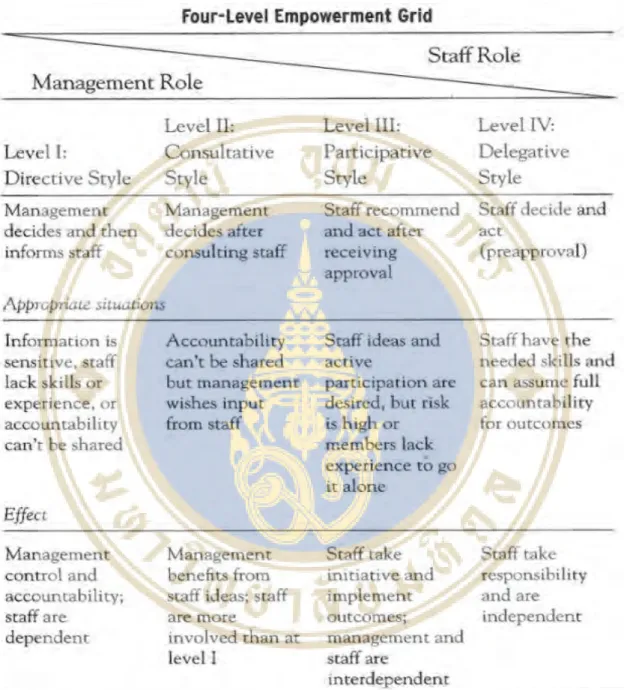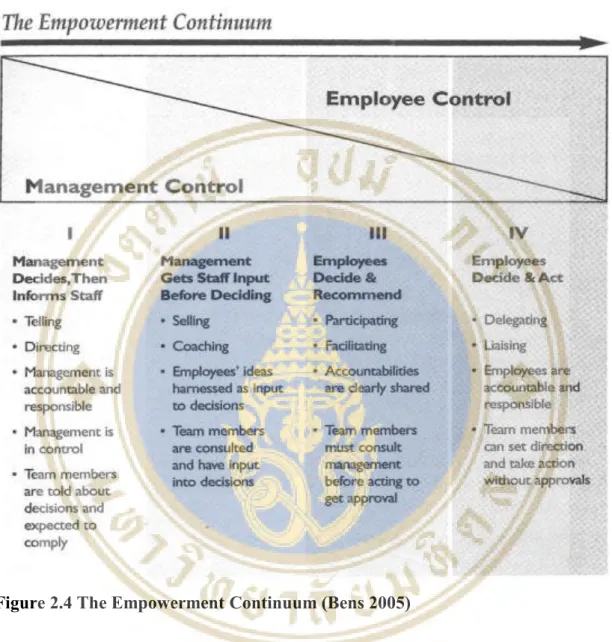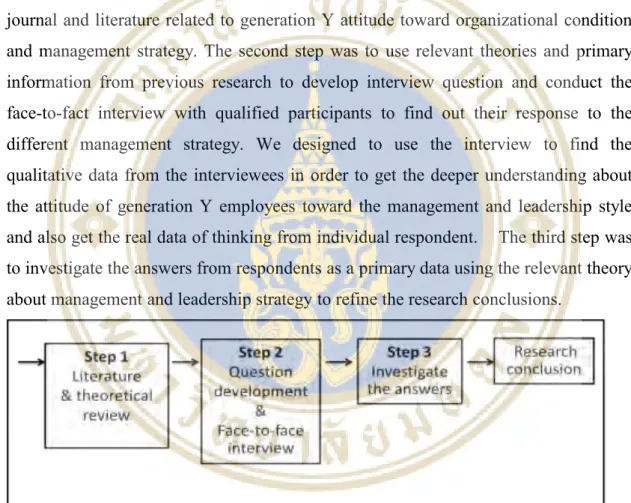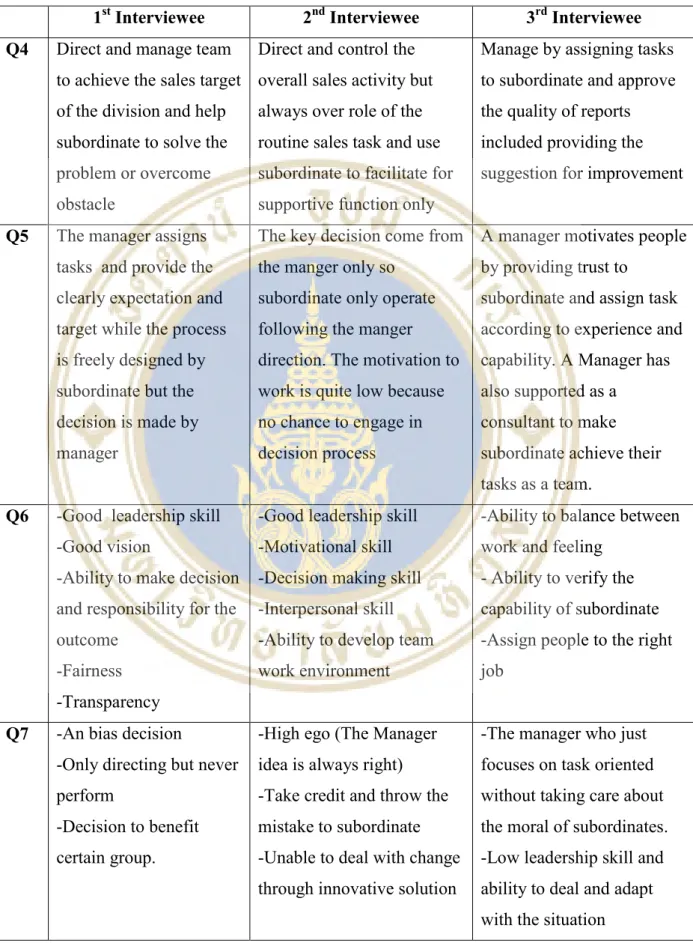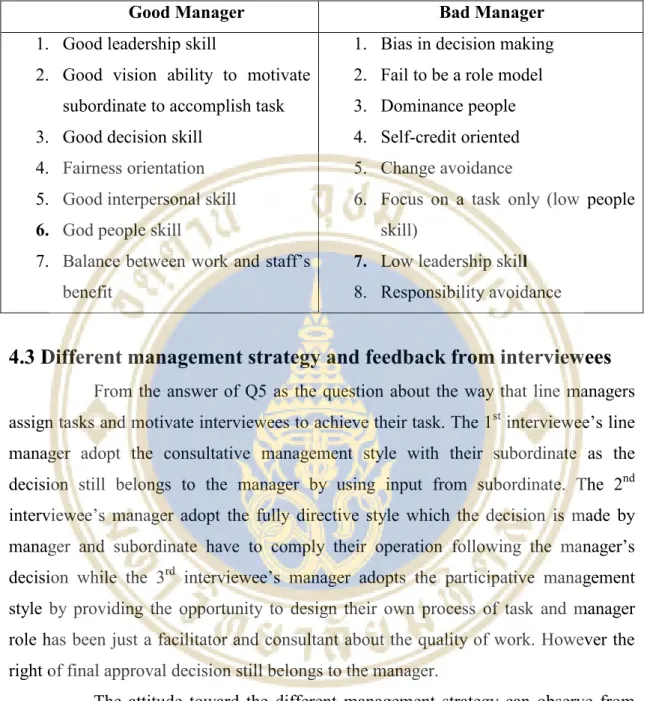The purpose of research is to find out about the impact of different management strategies on generation Y employees and give suggestions to managers who have subordinated generation Y to improve the work quality and utilize the unique power of innovation. The research was conducted by studying previous research related to generation Y and management strategy to design the interview questions for qualified generation Y employees who have direct and indirect experience of working with line manager who adopt the different management strategies. The feedback of the face. -face-to-face interview is used as a raw date to analyze the attitude of generation Y towards different management style. Demographics of the job market are changing due to the new generation of employees just entering the job market.
By the way, most companies are facing the challenge of the unique behavior of Generation Y employees due to disruptive communication across the generation. Differences in culture and value between generations become the main obstacle of these managements, especially with Generation Y employees. Therefore, some organizations decide to adapt their management style to be more flexible in order to retain Generation Y employees and use their powers of innovation rather than outright dominating them.
Kasikorn Bank understood the change and influence of the unique behavior of Generation Y employees and prepares the right solutions to retain their staffs such as improving the working environment, developing the IT system and staff recruitment procedure. Furthermore, the CEO also encourages managers to learn the right approach to manage and govern Generation Y employees (Thitaree Likittarm, Bangkokbiznews 2013). The face-to-face interview is conducted for 3 Generation Y employees who are qualified according to the following criteria.
The answers from all interviewees are used as raw data to analyze the attitude of generation Y employees towards the different management strategy.
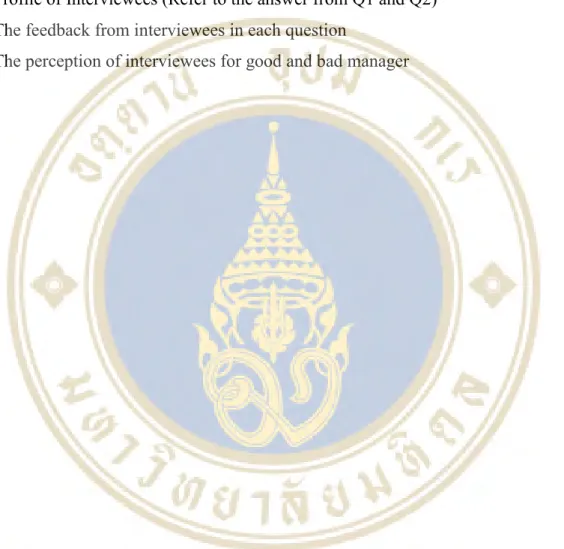
LITERATURE REVIEW
- Generation Y employees in organization
- Influence of management strategy to the motivation of generation Y employees
- Generation Y employees become the challenge for managers worldwide
- Leadership models and management strategy
These roles of boss and team player and the balance between them are explained in the literature with the term loose-tight leadership (Sagie & Koslowsky, 2000). The research analyst concluded based on primary data that was collected from people who live in the same company that has good conditions for Gen Y employees, so their response about management may not represent the Gen Y population who also work in different work environments. conditions so that the primary data collection could be improved by selecting a sample from another organization to increase the diversification of respondents. In 2010, Justin Meier conducted a study on Generation Y in the Workforce: Managerial Challenges, which was published in The Journal of Human Resource and Adult Learning Vol.
This research is specifically aimed at Gen Yers who have been in the workforce for several years. Please provide details.” The result of the study was analyzed from a total of 123 respondents who show the different feedback for various issues related to organization and condition that create their motivation or unmotivation to work, such as leadership, growth, promotion, support, etc. In the "leadership" category, 54% of respondents claimed that leadership was a motivating component of their work environment.
From this research, we discovered that leadership and management style have the greatest influence on the motivation of Generation Y employees to work effectively in the organization. The “good boss” in the sense of Generation Y is directly related to the manager's leadership paradigm. The aim of the research is to explore the manager-graduate relationship in the first few years of work and the expectations of managers, graduates and organizations for their future leaders and to investigate Generation Y outside the Western world, with an emphasis on the Middle East, India, Malaysia and China and the expected outcome of the research is to provide in-depth examples/case studies, international comparisons and recommendations and suggestions based on experiences.
The research method was adjusted to the online survey questionnaire in multiple choices to make processing easier, and interviews/focus groups were also conducted with recent graduates with less than five years of full-time work experience, along with HR managers/staff and senior executives who have experience working with Gen Y employees. Gen Y employees also want and need coaching and mentoring from other staff to upskill these people and help them take more ownership of their own development. 40% - 70% of graduates want their managers as a coach or mentor, with the Middle East the lowest and Malaysia the highest. The result also shows that young people can act as a valuable asset in discovering high quality human managers in organizations.
In addition to the research, there is also a survey on the challenge of managers, which the biggest challenge for managers is managing the expectations of their graduates. From the research, the different attitude of managers and employees of Generation Y was found and is developing worldwide, which affects the coordination between managers and employees. At the third level, people want to feel like they belong to a group, to have a sense of acceptance.
The next level of the hierarchy is the need for one's ego or status to be achieved and realized. At the fourth level (competence, prestige and esteem), people have the desire to become skilled at a task and to be recognized for their skill.
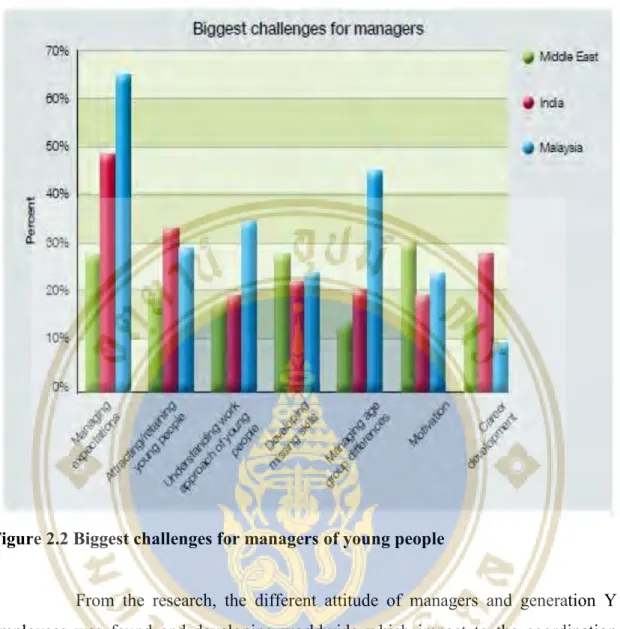
DATA COLLECTION METHODOLOGY
Some managers use dominance strategy with their subordinates and centralize the decision making through the limited authority. The interview questions are specifically designed for the interviewee to answer the question related to the purpose of this research and describe the impact of different management strategies in detail and are expected to use the answers as primary data leading to the conclusion. Question 5: How would you describe the way in which your manager leads and motivates you to work.
Directs and controls the overall sales activity, but always over role of the routine sales task and used subordinately to facilitate only for supporting function. Manage by assigning tasks to subordinate and approve the quality of reports included to provide the suggestion for improvement. Q5 The manager assigns tasks and provides the clear expectation and target while the process is freely designed by subordinate but the decision is made by manager.
Good leadership skills -Motivation skills -Decisiveness -Interpersonal skills -Ability to develop a team working environment. High ego (the manager's idea is always right) - Take credit and blame subordinates - Unable to deal with change through innovative solutions. The manager who only focuses on task oriented, without worrying about the morale of subordinates.
The work quality may be good, but not an innovative idea and improvement by learning from mistakes. Subordinates feel that the manager does not trust them. Subordinates do not want to come up with the idea or proactively improve work quality. If the manger delegates the task to the subordinate and only acts in a supportive and coaching role, the subordinate will feel that the manger is confident in his abilities and feels challenged to accomplish the task by using the best tools as self-motivation.
The way the manager handles the work and the subordinate's morale have a major impact on the subordinate.
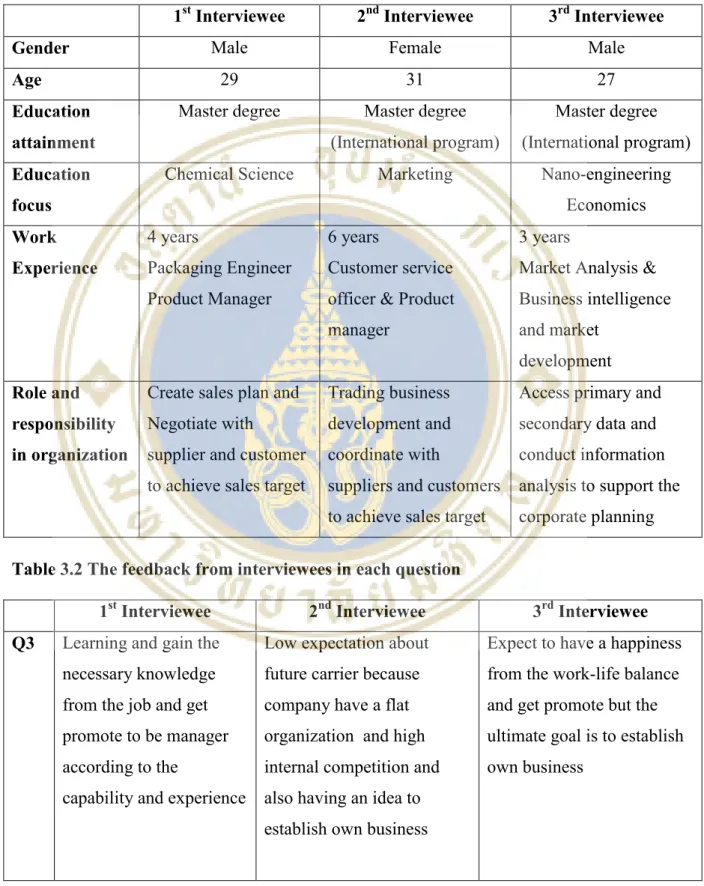
RESEARCH FINDING
The characteristic of generation Y of interviewee s
The characteristic of good and bad manager from the interviewee’s perception
Different management strategy and feedback from interviewees
The different management strategies also have an impact on the motivation of interviewees to work with the organization. The 1st and 3rd interviewees who let the line manager adopt the consultative and participative style feel that their task is challenging and want a career in the organization. The 3rd interviewee also mentions that he wants to provide the work quality beyond the line manager's expectation, because the manager trusts and respects his ability.
On the other hand, the 2nd interviewee shows the disappointment for the guideline management style and has a low motivation to contribute innovative idea to improve the work quality and proactively.
DISCUSSION
In addition, they also expect the manager to take responsibility for the outcome, whether good or bad. In summary, managers should consider the right management approach for Generation Y employees and how to empower them, because it directly affects the quality and motivation of work. The suggestion of future research is to expand the scope of the study and to expand the sampling group.
This study conducts interview with only 3 interviewees due to time limitation in the project, so the information may not represent the whole generation Y employee, and another research finding shows that the generation y employee has a motivation to become a business owner, so the organization will confront the difficulty of retaining the Generation Y employee. The future research may need to focus to solve this problem by developing the right approach to overcome this challenge and create the sustainable motivation of generation Y employees.
